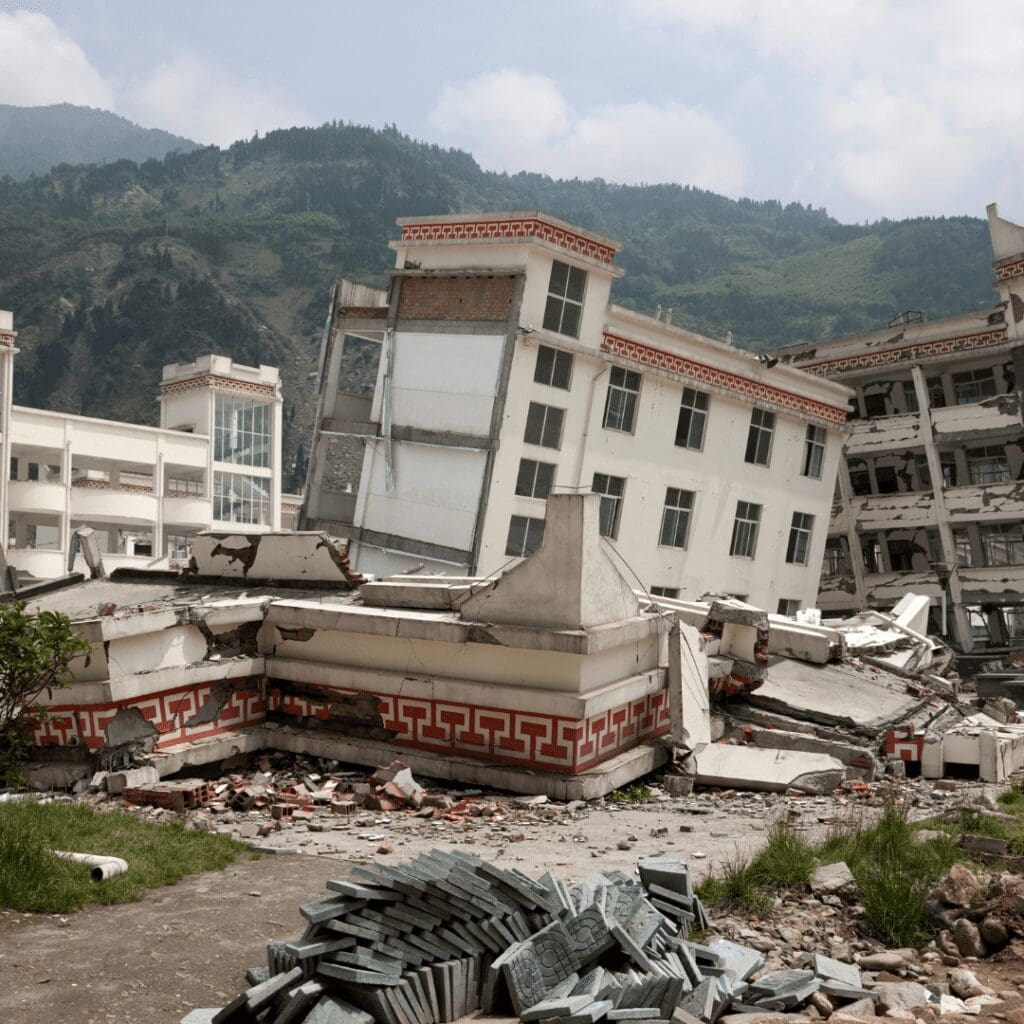
Disclaimer
Content in the safety section provided on this website is for general informational purposes only. You can choose whether to use it or not. For more see Safety Section Disclaimer in Help FAQs.
Guidance
Buildings can fully or partially collapse as a result of environmental events or structural failure.
Earthquakes can cause fires, tsunamis, landslides or avalanches. Protect your person.
– Drop
– Cover
– Hold

Drop
Wherever you are, drop down to your hands and knees and hold onto something sturdy.
Cover
Cover your head and neck with your arms. If a sturdy table or desk is nearby, crawl underneath it for shelter. If no shelter is nearby, crawl next to an interior wall (away from windows). Crawl only if you can reach better cover without going through an area with more debris. Stay on your knees or bent over to protect vital organs.
Hold
If you are under a table or desk, hold on with one hand and be ready to move with it if it moves. If seated and unable to drop to the floor, bend forward, cover your head with your arms and hold on to your neck with both hands.
After the initial earthquake
If you need help, contact emergency services.
Activate Help in Ylore, so your live location is known to select contacts.
Stay far away from mirrors, door glasses and heavy objects on safes that can harm you.
Do not use the lift. The stairs are safer.
Attempt to extinguish fires that may occur post event.
If you are in a damaged building, go outside and quickly move away from the building. Do not enter damaged buildings.
If you are outdoors, move away from any buildings or structures, where items could fall on you.
Assess
Assess your surroundings for any damage or hazards, and be cautious of potential gas leaks, downed power lines, or other dangers.
Listen
Listen for updates and follow instructions.
Tune in to emergency radio broadcasts or follow official social media accounts for updates and instructions from local authorities.
Follow their guidance regarding evacuation, sheltering in place, or any other safety measures.


